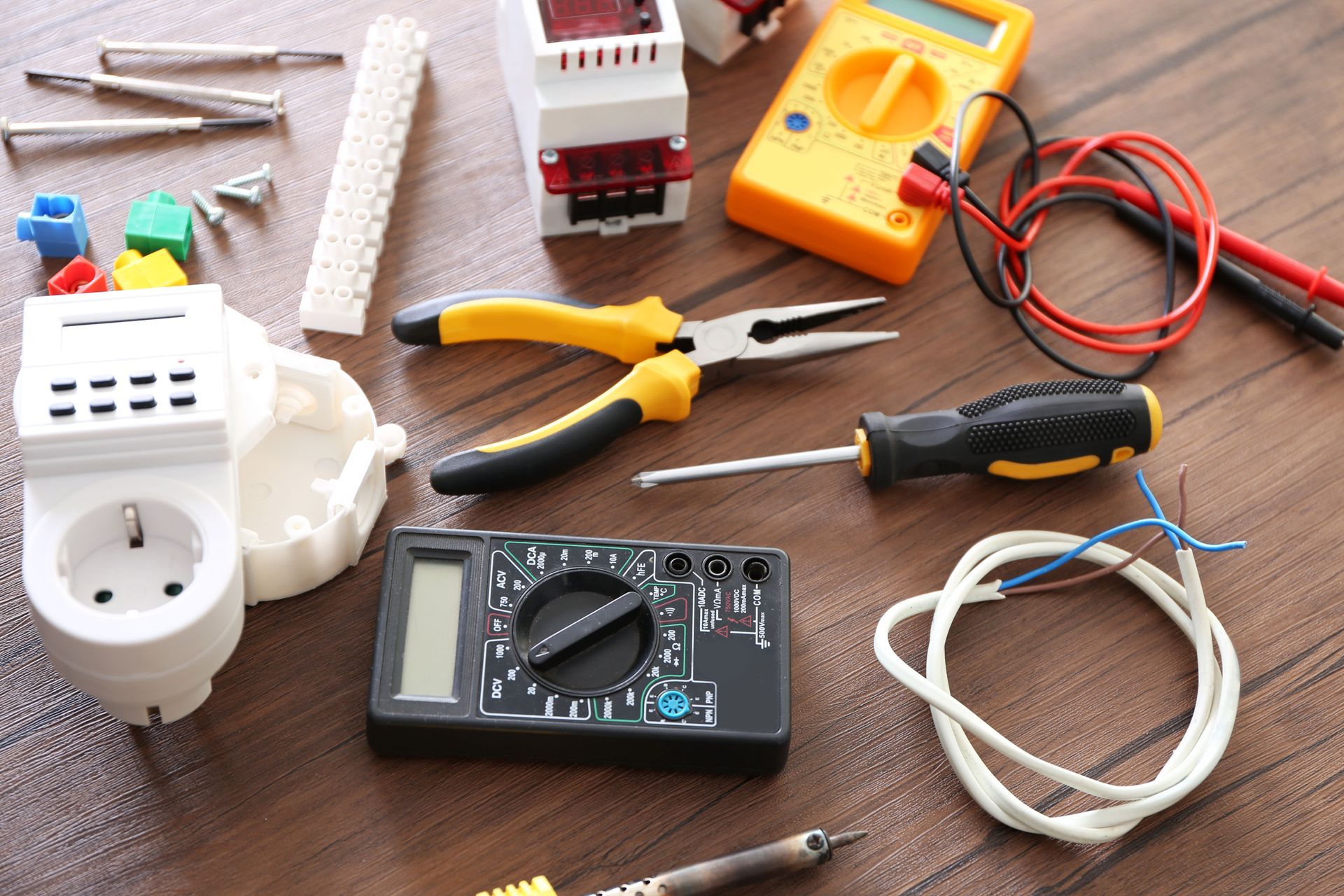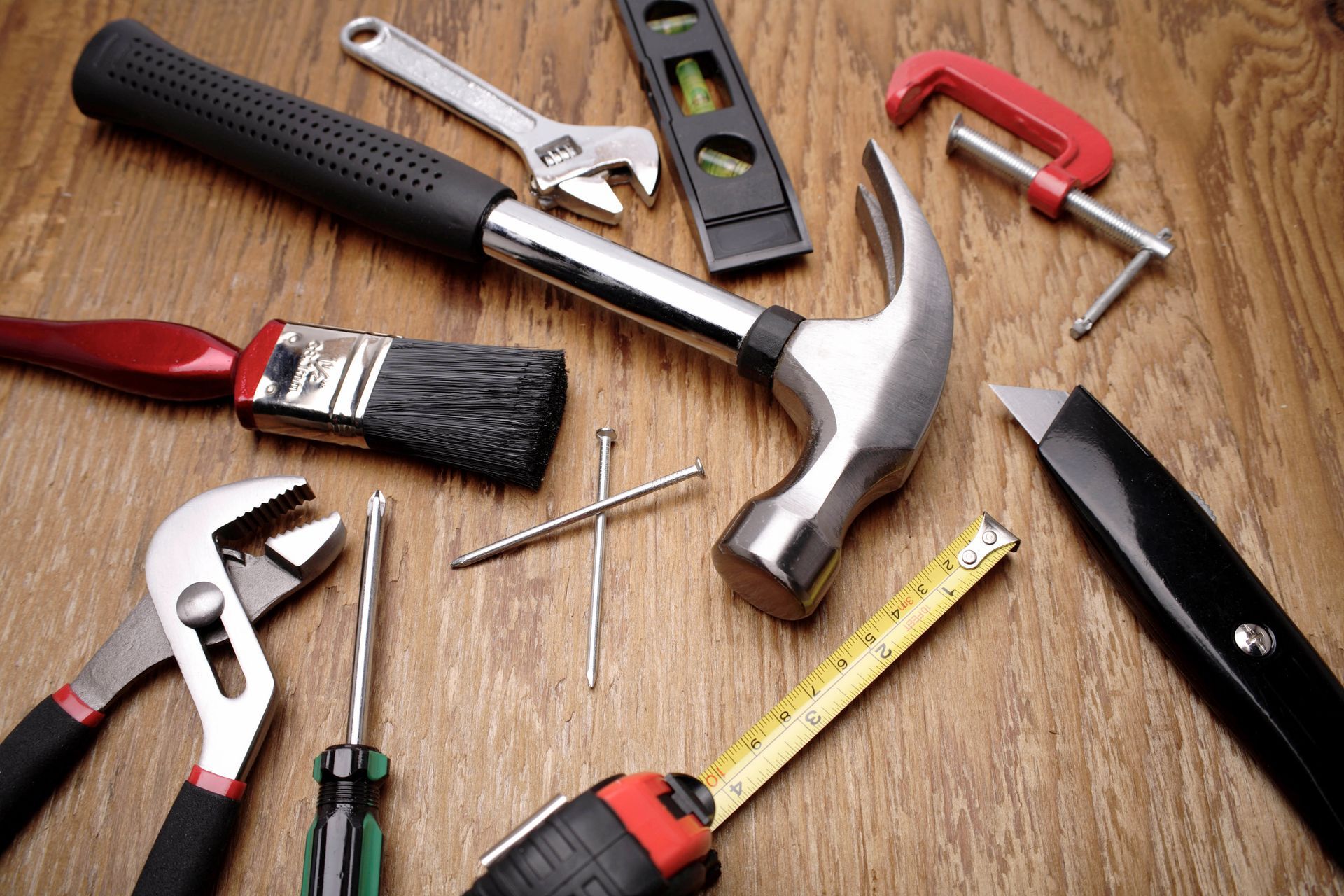Choosing the Right Hardware: Tips from Industry Experts
In any home system—whether electrical, HVAC, or plumbing—the importance of choosing the right hardware cannot be overstated. Selecting high-quality components directly affects the performance, safety, and efficiency of your installations and repairs. The wrong fittings, fasteners, or control units can lead to premature system failures, high energy bills, and even hazardous conditions. For homeowners and professionals alike, having a strong foundation in hardware knowledge helps streamline decision-making and maximize long-term results.
This article explores the significance of hardware across key home systems and shares expert tips to guide informed decisions. From HVAC components to plumbing fixtures and electrical connectors, choosing the right hardware is essential to the longevity and reliability of every project.
Making Smart Choices in HVAC and Air Conditioning Hardware
Selecting Energy-Efficient HVAC Components
HVAC installation and repair projects require hardware designed to maximize energy efficiency. Choosing properly rated expansion valves, high-quality duct insulation, and variable-speed blower motors can lower utility bills and increase comfort. Look for components with Energy Star ratings or AHRI certifications to verify performance and compliance.
Coordinating Compatible System Hardware
Hardware must be compatible across your HVAC system, especially between thermostats, furnaces, and air conditioners. Improper matching can result in performance issues and frequent repairs. Using hardware recommended by manufacturers ensures smooth communication between parts and protects against early breakdowns.
Installing Secure Air Conditioning Mounting Hardware
Air conditioners, particularly split systems and condensers, require durable mounting hardware such as vibration pads, wall brackets, and line set covers. These items reduce noise, minimize movement, and extend the life of your system by reducing wear on the housing and internal components.
Improving Airflow with Ductwork Hardware
Proper duct hardware, such as adjustable dampers, smooth transitions, and rigid collars, improves airflow and reduces inefficiencies. Poorly chosen fittings can cause uneven temperature distribution and increase the load on the system. Quality hardware ensures your air conditioning runs efficiently and delivers consistent comfort.
Supporting HVAC Contractors with Reliable Fasteners
Contractors rely on high-quality fasteners like self-drilling screws, sheet metal anchors, and hangers to install and repair HVAC systems. Using substandard hardware may lead to unsafe installations or callbacks. Professional-grade hardware improves installation speed, accuracy, and system integrity.
Enhancing Plumbing and Heating System Performance
Choosing Corrosion-Resistant Plumbing Hardware
Plumbing systems depend on materials that can withstand moisture and pressure. Brass, stainless steel, and PEX fittings are ideal for long-term durability and corrosion resistance. When selecting hardware for plumbing installation and repair, focus on material quality over cost to prevent future leaks and damage. According to The Guardian, almost half a million American households lack basic indoor plumbing, underscoring the need for reliable systems and quality parts.
Preventing Leaks with Proper Sealing Hardware
Sealing hardware such as O-rings, thread tape, and compression gaskets plays a vital role in preventing water leaks. These small components must be selected for both material compatibility and size. A poor seal can result in water damage, mold growth, and structural problems over time.
Maintaining Consistency in Plumbing Fixtures
Matching hardware across your plumbing fixtures—like shutoff valves, supply lines, and mounting brackets—ensures a clean installation and reduces service issues. Inconsistent hardware may not fit properly or may degrade faster, increasing the risk of repair and reducing your system's lifespan.
Installing Heat-Ready Components for Seasonal Use
Heating hardware, including igniters, flame sensors, and pressure switches, should be selected based on reliability under fluctuating seasonal conditions. Inadequate hardware can cause delays in heat delivery or system lockouts. Choosing trusted brands with high endurance ratings leads to safer, more efficient heating.
Enhancing Furnace Operation with High-Quality Hardware
Furnaces rely on a range of smaller components such as blower wheels, control boards, and limit switches to operate effectively. Using original or certified replacement hardware helps maintain performance and reduce repair frequency. These parts should be inspected and replaced as part of regular maintenance.
Prioritizing Safety and Efficiency in Electrical Hardware
Choosing Properly Rated Electrical Components
Electrical installation and repair work must comply with strict safety standards. Selecting hardware such as breakers, junction boxes, and wiring connectors with appropriate voltage and amperage ratings helps prevent overloads, fires, and equipment failures. All hardware should be UL-listed or equivalent to guarantee safety.
Matching Hardware to Environmental Conditions
Outlets and switches used in bathrooms, kitchens, and outdoor spaces should be waterproof or weather-resistant. Specialized hardware, such as GFCI outlets and in-use covers, adds safety and longevity in wet conditions. Skipping this step can create fire hazards and void warranties.
Installing Grounding and Surge Protection Hardware
Proper grounding and surge protection are critical to electrical safety. Ground rods, bus bars, and whole-home surge protectors protect appliances and circuits from sudden spikes. Investing in quality grounding hardware ensures both occupant safety and system stability during storms or grid fluctuations.
Upgrading Panels with Reliable Mounting Hardware
When updating electrical panels, high-quality hardware such as mounting brackets, cable clamps, and terminal screws is vital for secure connections. Loose or mismatched hardware can result in hot spots or connection loss. Proper support also makes future upgrades easier and safer.
Preventing Electrical Hazards with Durable Fasteners
Electrical systems require insulated, corrosion-resistant fasteners that can maintain a secure grip over time. Using hardware like cable ties, wire staples, and conduit clamps helps protect wiring from movement, heat exposure, or accidental contact, which significantly reduces the risk of fire or injury.
Understanding Hardware Maintenance and Replacement Best Practices
Inspecting Hardware During Routine System Checks
One of the most overlooked aspects of system upkeep is regularly inspecting the hardware itself. Whether it’s HVAC brackets, electrical terminals, or plumbing fasteners, each component experiences wear over time. Corrosion, fatigue, or general deterioration can compromise performance and create safety hazards. During routine inspections, hardware should be evaluated for rust, movement, cracking, or loosening. Catching issues early helps extend the life of your system and prevents expensive emergency repairs.
Replacing Hardware Before Failure Occurs
Waiting for hardware to fail before replacing it is a risky practice. Components such as electrical connectors, HVAC capacitors, or valve seals may still appear intact even when they’re losing effectiveness. Replacing critical hardware based on age, manufacturer recommendations, or signs of weakening is a proactive approach that safeguards your home. Scheduling seasonal hardware replacement—especially before summer cooling or winter heating—keeps systems running reliably when they’re needed most.
Storing Extra Hardware for Faster Repairs
Having a small supply of backup hardware for your most-used systems can drastically reduce downtime when something goes wrong. Keeping extra hose clamps, fuses, fasteners, or gaskets in labeled containers ensures you or your contractor can perform repairs without waiting on parts. For rural homes or properties with custom installations, maintaining a mini-inventory of matching hardware components is even more essential.
Cleaning and Protecting Exposed Hardware
Outdoor or semi-exposed systems such as air conditioning units, spigots, or exterior outlets are especially vulnerable to hardware degradation. Rust, insect nests, or plant growth can obstruct access or corrode metal components. Periodically cleaning visible hardware and applying protective coatings—like anti-rust sprays or weather covers—will maintain both appearance and function.
Choosing the right hardware across home systems isn’t just about cost—it’s about making decisions that affect safety, efficiency, and reliability for years to come. HVAC systems depend on energy-efficient, well-fitted components. Plumbing systems need corrosion-resistant materials and proper seals. Electrical work requires code-compliant, safety-tested parts. Each project’s success is tied to these small yet essential pieces.
When in doubt, consult professionals who understand the hardware behind the systems. Expert insight helps avoid mismatches, installation errors, and unnecessary repairs. With the right parts in hand, your systems can deliver peak performance, lower energy bills, and safer conditions throughout your home.
For professional guidance and access to trusted hardware across all your home improvement needs, contact A & R Home Center today.



